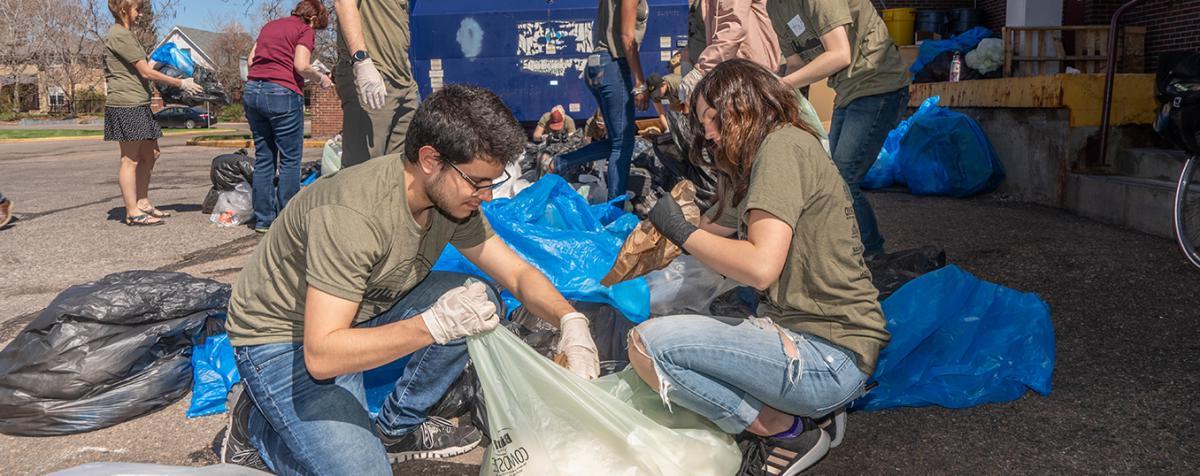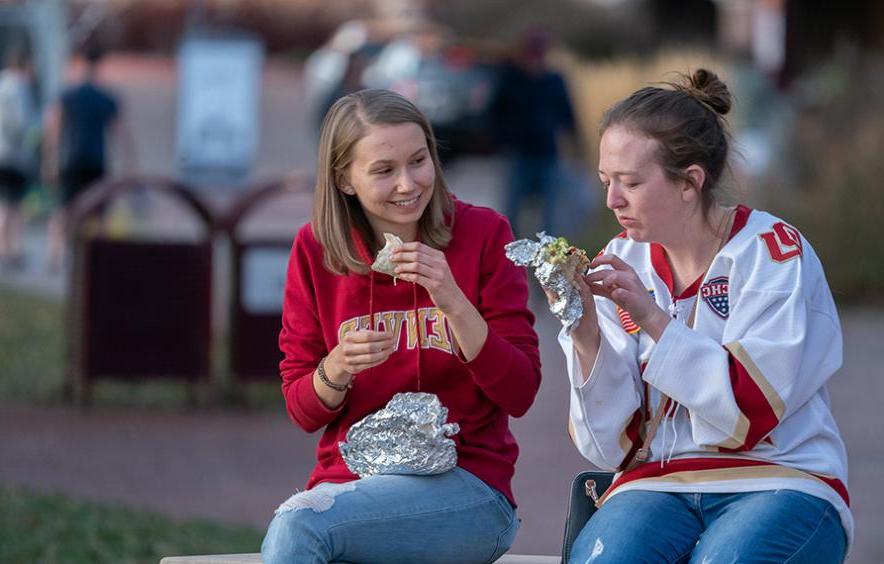食物 & 浪费
食物 isn't just an issue of sustainability — it's intertwined with some of the most challenging injustices of our time. Some 40 percent of all food produced in the United States ends up in a l和fill, 和 food waste contributes 22 percent of municipal solid waste in l和fills. 食物 production 和 waste are also major drivers of greenhouse gas emissions worldwide.
With initiatives that engage our student body, 教职员工, as well as the larger community, we're targeting excess waste 和 educating our campus about recycling 和 composting. We're also developing new ways of sourcing the food we serve 在校园, striving toward healthier options whose origins are in step with our commitment to environmental responsibility 和 social justice.
Sustainable 食物 Initiatives
桥社区花园
Managed by 教师 in the Biology Department, the 桥社区花园 provides raised beds that 教师, 工作人员, 和 students can rent for the summer growing season for a small fee. The garden provides growing space for those who may not have such space in their homes, 和 allows our community to learn how to grow 和 care for their own food together.
语言学校的花园
Managed by the Center for 可持续性, the 语言学校的花园 offers community food-growing space for students 和 other individuals looking to contribute to a more home-grown paradigm. Located next to the English Learning Center on Asbury 和 Josephine, the ELC garden houses eight raised garden beds where we experiment with different herbs 和 vegetables that can serve as a cultural exchange between the international students studying at the ELC 和 domestic students who run the garden.









